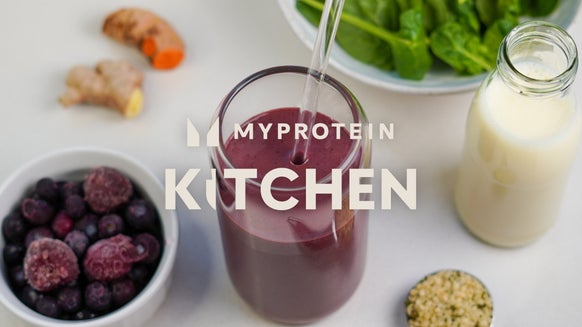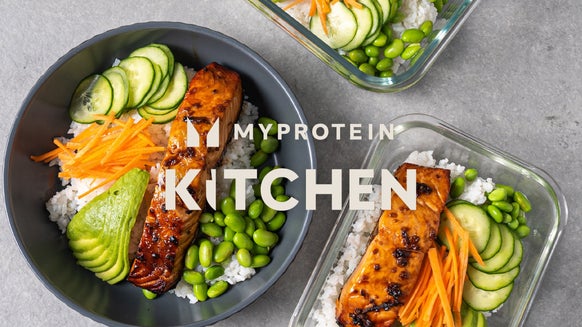The Importance Of Heart Health For Men | Exercises To Help Better Heart Health

We often take our bodies for granted, assuming they'll always keep working when we need them to. After all, they've always done so in the past, right?
Now, I don't want to sound like a bore, but a busy, stressful life can affect your health. But if do you want to live fast, you need to look after yourself, especially your heart.
Think of your heart as your engine room. It delivers nutrients and oxygen throughout your body while removing waste along the way. And it does this all day, every single day.
While you sleep, your heart rate decreases. When you get up, your muscles need oxygen to carry you to breakfast, the office, or the gym. And when you exercise, your heart adjusts and supplies the necessary oxygen and glucose to meet your body’s demands.
Clearly, your heart is important, so it's worth taking care of it.
Why is heart health important?
Cardiovascular disease (CVD) is one of the leading causes of death and disability in the UK, but following a healthy lifestyle can help reduce the chance of it happening.
It sounds scary, but the good news is there are things you can do to help reduce the chance of this happening.
One of the best things you can do to improve your heart health is to do aerobic exercise, or cardio.
If you’re like me, you may immediately think of spandex leggings, leotards and ankle warmers, but you don’t need to dress that way for cardio to be effective.
You could jog, cycle, swim, dance, play a sport like football, basketball, or tennis. Or you could do a HIIT circuit. As long as, you get your heart pumping regularly, it’s good for you.
Strength training can also be good for your heart health as well as overall health, with benefits like improved blood flow and lower blood pressure.
Doctor's Advice
Dr Ishrat Ahmed, Group Medical Director at The Hut Group, says "the heart works as a muscular pump, and with each beat it pumps blood across the body. It sends oxygen and vital nutrients to all necessary organs and muscles to help them work properly and takes away waste.

In the zone
There are three main variables of exercise: frequency, duration, and intensity. Frequency refers to how often you train, duration how long you train, and intensity how hard you train.
So, if you’re 40 years old, your maximum heart rate would be 180 beats per minute (bpm). Heart rate zones are then calculated as a percentage of your maximum heart rate.
These are the five heart rate zones and their corresponding percentages:
Very light (50-60%) Light (60-70%) Moderate (70-80%) Hard (80-90%) Maximum (90-100%)
Why is it important for men over 40 to look after their hearts?
As with many things in life, prevention is better than a cure. It’s the same for heart health, especially when we get closer to middle age and lifestyle factors begin to catch up.
During this stage of life, many people have progressed far into their careers and work high-stress jobs with long hours and little time for activity. It’s easy to fall out of the habit of regular exercise when this is the case.
It's likely other unhealthy habits have developed over the years, too. These habits are usually a problem because of their regularity, like drinking alcohol or eating too much takeaway food, and can lead to weight gain, low energy levels, and difficulty sleeping.
Taking care of your health through exercise, helping the entire body as well as the heart, is a great way to reduce or avoid many of these issues that often get worse with age.

How to look after your heart health
Aerobic exercise and strength training
Eat healthily
A healthy diet is vital for good heart health. Eat plenty of fruit, vegetables, whole grains, lean protein, and healthy fats. Limit your consumption of processed foods, saturated fats, and added sugars.
Don't stress
Managing stress is another essential part of heart health. Chronic stress can have a negative effect on the cardiovascular system. Find healthy ways to cope, like through deep breathing, meditation, or yoga. Good sleep is also important for avoiding heart problems.
Limit alcohol and don’t smoke
Smoking and drinking too much alcohol are terrible for heart health. Among other things, smoking can damage blood vessels, while alcohol can raise blood pressure and contribute to heart failure. If you need support to reduce your consumption or quit altogether, speak to your healthcare provider.
Go to the doctor
Regular check-ups with your healthcare provider are essential for monitoring your heart health. They can assess your risk factors, perform screenings, and offer guidance on how to manage heart-related conditions like high blood pressure or high cholesterol.

High-Intensity Interval Training (HIIT)
Here’s a 30-minute HIIT workout that’ll get your heart pumping. It involves timed work and includes rest periods, cycling through several phases of loading and recovery.
Plus, it needs minimal equipment. All you need is a pair of dumbbells and a box (or bench) to jump on top of.
Round 1
Dumbbell front/side raises Dumbbell biceps curls Dumbbell shoulder press Dumbbell row
Round 2
Plyo box jumps Dumbbell reverse lunges Pulsing squat Squat jumps
Round 3
Dumbbell Russian twists Sit-ups Side plank Renegade rows
For a video demo, check out this post.
Steady State Cardio
Steady state cardio can take many forms, but it should be something you find enjoyable. The goal is to maintain a heart rate in zone 2 for a prolonged period, ideally 30 minutes, working at about 60-70% of your max heart rate.
Jogging Swimming Cycling Rowing Elliptical Training
Or if you’re more adventurous:
Rock climbing Trail running
Resistance Training
To specifically target the cardiovascular system during strength training, aim for a reasonably long work period using moderately heavy weights (about 60%-70% of your maximum weight) for higher rep ranges (12-15 reps) and perform 3-4 sets.
Free-weight exercises:
- Bench press
- Push press
- Back squat
Deadlifts
Pin-loaded machine exercises:
- Chest press machine
- Shoulder press machine
- Lat pull down
- Leg curls
- Leg extensions
Leg press
Take Home Message
Your heart’s for life, so look after it. Exercise regularly and eat well, and you’ll have the best chance possible of keeping it in tip-top shape.
READ THESE NEXT:

How To Choose The Best Multivitamin For Men
Make sure you're stocked up on all the vits you need.

Time Off Doesn't Mean Lost Gains, Muscle Memory Explained
Nutritionist explains a beautiful, mysterious thing called muscle memory.












